Rhenium is a rare and fascinating metal that plays a crucial role in several high-tech industries. Although not as well-known as some other metals, its unique properties make it invaluable in various applications. In this blog, we will explore what rhenium is, its key properties, and the many ways it is used across different industries.
What is Rhenium?
Rhenium is a chemical element with the symbol Re and atomic number 75. It was discovered in 1925 by the German scientists Ida Tacke, Walter Noddack, and Otto Berg. Rhenium is a member of the platinum group metals and is found in very small amounts in the Earth's crust.
Physical and Chemical Properties of Rhenium
Rhenium has some interesting physical and chemical characteristics:
-
High Melting Point: It has one of the highest melting points of any metal, at around 3,180°C (5,756°F). This makes it very useful in high-temperature applications.
-
Density: Rhenium is quite dense. This makes it effective in situations where strength and durability are essential.
-
Corrosion Resistance: Rhenium resists corrosion and oxidation. This helps it maintain performance in harsh environments.
These properties make rhenium valuable in a range of specialized uses.
The Importance of Rhenium in Modern Industry
Rhenium is one of the rarest elements on Earth. It is usually found in small quantities as a byproduct of copper and molybdenum mining. Because of its rarity, rhenium is precious and often expensive. However, its unique qualities justify the cost in many industrial applications.
Uses of Rhenium
Rhenium, with its remarkable properties, finds applications in several critical areas across industries. Let's delve deeper into its various uses:
Aerospace Industry

-
Superalloys for Jet Engines: Rhenium is integral to superalloys like Re-containing nickel-based alloys. These alloys are used in the hottest sections of jet engines and gas turbines. These alloys maintain their strength and stability at extreme temperatures, often exceeding 1,000°C (1,832°F). The addition of rhenium enhances the alloy's creep resistance (the tendency to deform under prolonged stress). This makes engines more efficient and durable.
-
Rocket Propellants: Rhenium is used in rocket engine nozzles and combustion chambers. This is due to its high melting point and resistance to high-pressure and high-temperature environments. In rocket propellants, rhenium's properties help ensure stable and efficient propulsion systems.
Electronics
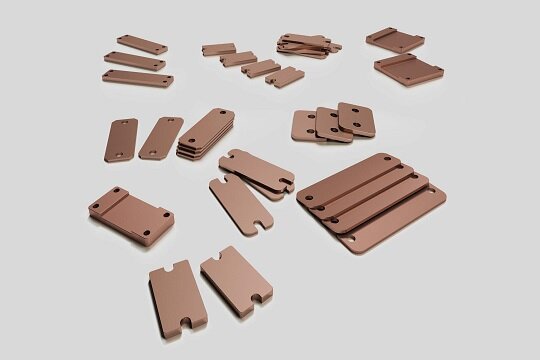
-
Electrical Contacts: Rhenium has excellent resistance to oxidation and high temperatures. This makes it ideal for electrical contacts in high-performance switches and relays. These contacts are crucial in aerospace, defense systems, and high-frequency applications. In these areas, reliability and longevity are essential.
-
Semiconductor Materials: Rhenium is used in certain semiconductor materials and thin-film devices. For example, rhenium disulfide (ReS2) has unique electronic properties. Thus it's investigated for its potential use in next-generation electronic and optoelectronic devices.
Catalysis
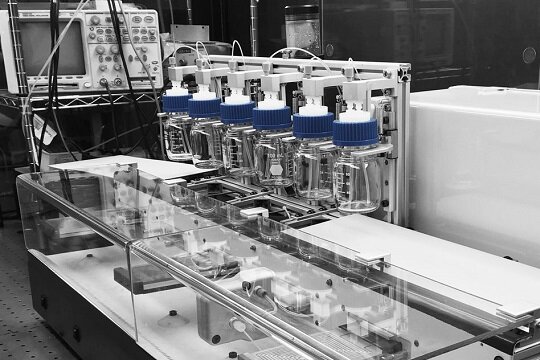
-
Petrochemical Industry: In refining, rhenium catalysts are used to facilitate the conversion of heavy hydrocarbons into lighter fuels. Rhenium catalysts enhance the efficiency of processes like hydrocracking. This helps produce high-quality fuels from crude oil. This is crucial for meeting the energy demands of modern transportation and industry.
-
Chemical Synthesis: Rhenium is used in various chemical synthesis reactions. For example, those reactions that produce high-value chemicals and pharmaceuticals. Its role in these processes often involves facilitating complex reactions with high precision and efficiency.
Medical Applications

-
Radiotherapy: Rhenium isotopes, such as rhenium-188 and rhenium-186, are used in targeted radiotherapy for cancer treatment. These isotopes can be incorporated into radiopharmaceuticals that deliver localized radiation to tumors. This can enhance treatment efficacy and minimizing damage to surrounding healthy tissues.
-
Diagnostic Imaging: Rhenium is utilized in radiopharmaceuticals for diagnostic imaging, such as PET scans. These compounds help create detailed images of internal body structures. This can assist in the accurate diagnosis and monitoring of various medical conditions.
Metallurgy and Materials Science
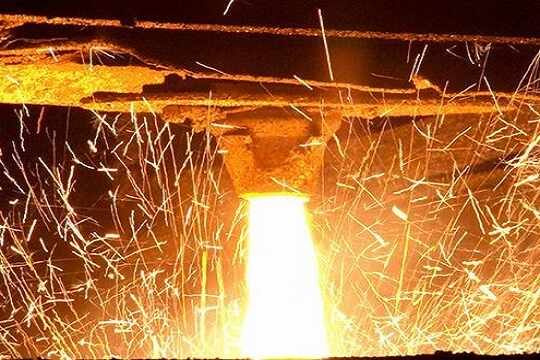
-
High-Temperature Alloys: In addition to aerospace and defense, rhenium is used in high-temperature alloys for industrial applications. These alloys are employed in manufacturing components for power generation, chemical processing. In these environments, resistance to extreme temperatures and oxidation is essential.
-
Superconductors: Rhenium is used in the development of certain superconductors, materials that exhibit zero electrical resistance at very low temperatures. This application is important for creating highly efficient power transmission systems and advanced magnetic resonance imaging (MRI) machines.
Automotive Industry

-
Catalytic Converters: Rhenium is used in catalytic converters. Though it's less commonly than platinum or palladium. In these converters, rhenium helps in the reduction of nitrogen oxides (NOx) and other pollutants from vehicle exhaust gases. It enhances the efficiency of the conversion process. This contributes to lower vehicle emissions and compliance with environmental regulations.
-
Performance Parts: Rhenium alloys are used in high-performance automotive parts. For example in turbocharger components and exhaust systems. This is due to their ability to withstand high temperatures and stress. This use enhances the durability and performance of vehicles, particularly in racing and high-performance applications.
Jewelry and Decorative Arts
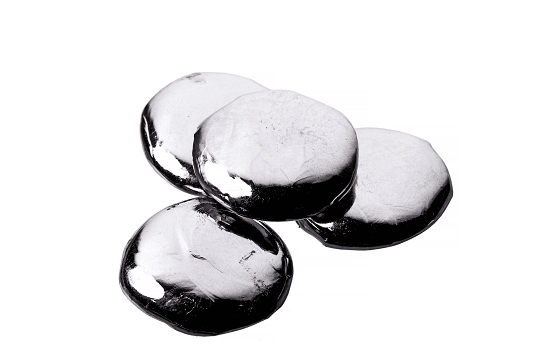
-
Jewelry Alloys: Rhenium is occasionally used in jewelry alloys to create unique colors and enhance the metal's durability. It has ability to improve the hardness and scratch resistance of precious metals. This makes it valuable for high-end jewelry pieces and decorative items.
-
Decorative Coatings: In decorative arts, rhenium is used in coatings and finishes for luxury items. These coatings can provide a unique aesthetic appearance and increased resistance to wear and tarnishing.
Energy Sector

-
Nuclear Reactors: Rhenium is explored for use in the nuclear energy sector. It can be used in reactor components due to its high melting point and resistance to radiation damage. This application helps improve the efficiency and safety of nuclear reactors.
-
Renewable Energy: Rhenium is also considered for applications in renewable energy technologies. For example, rhenium-based alloys and materials can be used in concentrated solar power (CSP) systems. These systems rely on high-performance materials to withstand intense sunlight and heat.
Telecommunications

-
Optical Fiber Technology: Rhenium is used in the production of certain types of optical fibers and other telecommunications equipment. It has ability to perform under high temperatures and in harsh conditions. This makes it suitable for components used in high-speed and long-distance communication networks.
-
High-Frequency Devices: In telecommunications, rhenium is used in high-frequency and microwave devices. It has stability and conductivity at high frequencies. These properties are critical for the performance of communication systems and electronic devices.
Manufacturing and Industry
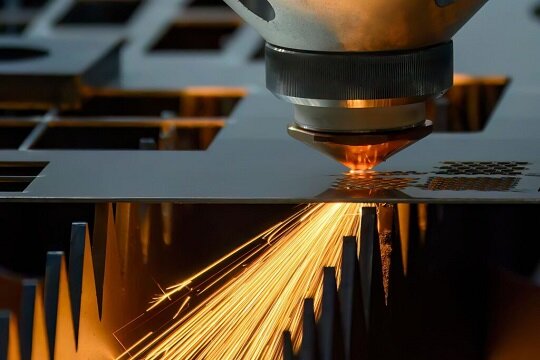
-
High-Strength Tools: Rhenium is used in the production of high-strength cutting tools and machinery. Its properties improve the hardness and wear resistance of tools used in machining and industrial operations, extending their lifespan and performance.
-
Electroplating: Rhenium is used in electroplating processes to create coatings on various materials. These coatings can enhance the appearance, corrosion resistance, and durability of products ranging from industrial components to consumer goods.
Innovations and Future Trends
Research is ongoing into new ways to use rhenium:
-
Emerging Technologies: Scientists are exploring rhenium's potential in cutting-edge technologies. For example, in advanced materials and space exploration.
-
Development of New Applications: As technology evolves, new uses for rhenium are being discovered. This may open up even more exciting possibilities.
Environmental and Safety Considerations
Handling rhenium requires care:
-
Environmental Impact: Mining and processing rhenium can have environmental effects, so it's important to manage these activities responsibly.
-
Safe Handling: Due to its rarity and the complexity of its processing, proper safety measures must be followed when working with rhenium.
Conclusion
Rhenium may be a rare metal, but its impact is significant across many industries. From enhancing jet engines to enabling advanced electronics and medical treatments, rhenium's unique properties make it a valuable resource. As technology continues to advance, the role of rhenium is likely to expand, offering even more benefits and applications.
If you want to learn more about how rhenium can benefit your industry or if you have any questions about our rhenium products, please don't hesitate to contact us. Stay updated with the latest news and developments in the world of rhenium.





















